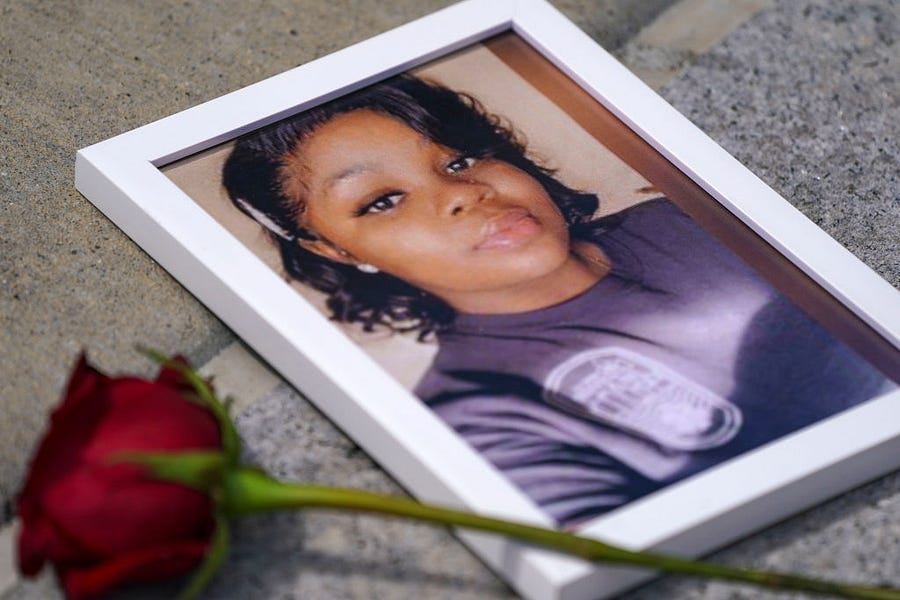One of the most controversial words in modern discourse is “systemic.” When we see a tragedy or injustice, we ask ourselves: How much blame should we allocate to “the system,” and how much blame should we allocate to individuals?
Traditionally—and especially when it comes to matters of race—progressives are more apt to look for systemic failures and conservatives are more apt to find individual fault.
And so it is in the debate over police misconduct. It’s not that reasonable conservatives think that all police are good. It’s just that they’re more likely to see a terrible event like George Floyd’s murder or the shooting death of Breonna Taylor and see either the work of a “few bad apples” or the terrible consequences of split-second individual decisions.
Earlier in my career, I heavily weighted the analysis towards individual accountability and individual judgments. After all, ever since the rise of equal protection jurisprudence and the Civil Rights Act, the formal, legalized instruments of racial discrimination have been wiped away. Law enforcement as a system was obligated to protect civil liberties and police American citizens on a colorblind basis.
I’m no longer so sanguine about systems, and new developments in Breonna Taylor’s case help illustrate why. Earlier today a detective named Kelly Goodlett pleaded guilty to one count of conspiracy for making false statements to secure the search warrant for Taylor’s home and then lying to cover her tracks.
Goodlett was one of four officers facing federal civil rights charges for their role in Taylor’s death, and her role was particularly pernicious:
In the application for the search warrant for Ms. Taylor’s home, Joshua Jaynes, a former detective who is among those facing charges, claimed that he had “verified through a U.S. postal inspector” that Mr. Glover [Taylor’s former boyfriend and a suspected drug dealer] was having packages sent to her apartment. Mr. Jaynes later admitted that he had not spoken with any postal inspector.
In court documents, prosecutors have said that Ms. Goodlett knew that Mr. Jaynes’s claim in the warrant application was false, and that she had added another misleading statement when she asserted that Mr. Glover had been using her address as his own.
More:
As Ms. Taylor’s death attracted more public attention, prosecutors said, Ms. Goodlett and Mr. Jaynes met in Mr. Jaynes’s garage and decided to tell investigators that the warrant had been based not on the verification of a postal inspector, but on an offhand comment by a sergeant. Mr. Jaynes has repeated that claim, but federal prosecutors said that it, too, was false.
As a result of Goodlett’s misconduct, Louisville police served a warrant based on false information, and broke into an apartment they never should have raided. Police had been granted a no-knock warrant but used quick-knock tactics. They pounded on the door briefly before breaking it down (witnesses have disputed their claims that they identified themselves as police).
Police then faced Taylor’s armed boyfriend. He testified that he never heard the police identify themselves, and when shadowy unidentifiable figures broke down his door in the middle of the night, he had a right to defend himself and his girlfriend. When he opened fire—hitting and nearly killing one of the officers serving the warrant—the officers had their own right to return fire.
The result was a hail of police gunfire that missed Taylor’s boyfriend and hit Taylor, killing her on the spot.
On the one hand, you might say that this terrible shooting is a prime example of individual failure. The search warrant system itself demands honesty. After all, there are penalties for perjury when detectives falsify a search warrant. Judicial review helps limit police autonomy and provides independent accountability.
But how many individuals have to conspire or fail before we consider whether systems are at fault? Let’s zoom out just a bit and look at all the systemic problems that helped place corrupt individuals in a place where they could do deadly harm.
First, the prevalence of no-knock (or in this case, quick-knock) entry is the logical product of Supreme Court case law. In 1995 SCOTUS articulated a broad exception to the rule that police must “knock and announce” when executing a search warrant. The exception permitted police to execute no-knock raids when they feared violence, when a suspect had escaped custody, or when police feared that a suspect would destroy evidence.
That last exception—especially in drug cases—created a loophole that swallowed the rule. No-knock warrants were almost laughably easy to obtain, and not even a 1997 Supreme Court case that purported to narrow the exception made much of an impact.
Then, in 2006, SCOTUS made matters worse. In a case called Hudson v. Michigan, it held that evidence seized in violation of the default “knock-and-announce” requirement wasn’t subject to the exclusionary rule, which prohibits law enforcement from introducing wrongfully seized evidence in criminal trials. So even if a no-knock or quick-knock raid was unconstitutional, police could still use any evidence they seized.
Now, combine those doctrines with qualified immunity—the rule that grants police officers and other public officials a limited immunity from civil suit even if they violate citizens’ civil rights—and you can see the obvious incentive for no-knock or quick-knock raids. You can bust down a citizen’s door, and even if your warrant was bad, you can not only typically still use the evidence you seize, you can’t even be held liable if you violated their rights.
Qualified immunity doesn’t always shield the state from responsibility (Taylor’s family received a substantial settlement from the city of Louisville), but police mistakes still do cost lives and leave families with no legal recourse.
Let’s add a final layer. The Supreme Court has also given officers broad latitude to use deadly force against armed citizens even when the police—and not the citizen—is violating the Constitution.
The most recent case articulating this rule is County of Los Angeles v. Mendez, decided in 2016. Police were searching for a violent felon and entered Angel Mendez’s dwelling without a warrant. Here’s what happened next:
When Deputy Conley opened the wooden door and pulled back the blanket, Mendez thought it was [his neighbor] and rose from the bed, picking up the BB gun so he could stand up and place it on the floor. As a result, when the deputies entered, he was holding the BB gun, and it was “point[ing] somewhat south towards Deputy Conley.” Deputy Conley yelled, “Gun!” and the deputies immediately opened fire, discharging a total of 15 rounds. Mendez and [his girlfriend] “were shot multiple times and suffered severe injuries,” and Mendez’s right leg was later amputated below the knee.
I have no objection to not prosecuting officers who are operating in good faith and open fire under those circumstances. They shouldn’t have to face a choice between prison or their life. But to protect them even from civil liability for their mistakes? That’s a bridge too far.
Put all those things together, and the system has created incentive after incentive for police to use the most dynamic and most violent forms of home entry, even when the facts may not warrant their use. After all, even if things go wrong, they can still use the evidence, they generally won’t be prosecuted, and they’ll enjoy broad protections even from civil lawsuits.
None of that excuses the individual misconduct in Taylor’s case, but I’m reminded of a question we’d often ask during my Army service. Did the system set you up for success, or for failure? In this case, the system pushes towards failure—not as dramatically or as blatantly as it did during the Jim Crow era, when police could operate with near-impunity against marginalized communities, but toward failure nonetheless.
In that context, individual prosecutions—while necessary—are inadequate. Systemic reform is necessary. The suggestions below would place concrete barriers between even corrupt cops and innocent citizens. Under such policies, the Taylor warrant would have been substantially different, if it existed at all.
Change rules so that no-knock entry is acceptable only when human life is at stake. The preservation of evidence is not sufficient reason to send armed agents of the state barging into a private home in the dead of night, especially when so many homeowners are armed and often possess a right to shoot when they can’t discern if intruders are police.
Restore the full scope of the exclusionary rule so that knock-and-announce requirements have real teeth.
End qualified immunity so that citizens can recover damages when agents of the state violate their civil rights. No, don’t prosecute police when they use deadly force in good faith to save their own lives, but don’t force citizens to bear the entire cost of the state’s mistakes.
There are still three more federal civil rights cases pending related to the Taylor warrant and shooting, including a case against an officer who fired wildly into Taylor’s apartment. Individual justice will matter, but until we further reform the systems that helped set events in motion that dreadful night, more innocent people will die, and we’ll keep learning a terrible truth: Individuals lie, and individuals pull triggers, but when laws permit injustice, then systems can kill.







Please note that we at The Dispatch hold ourselves, our work, and our commenters to a higher standard than other places on the internet. We welcome comments that foster genuine debate or discussion—including comments critical of us or our work—but responses that include ad hominem attacks on fellow Dispatch members or are intended to stoke fear and anger may be moderated.
With your membership, you only have the ability to comment on The Morning Dispatch articles. Consider upgrading to join the conversation everywhere.